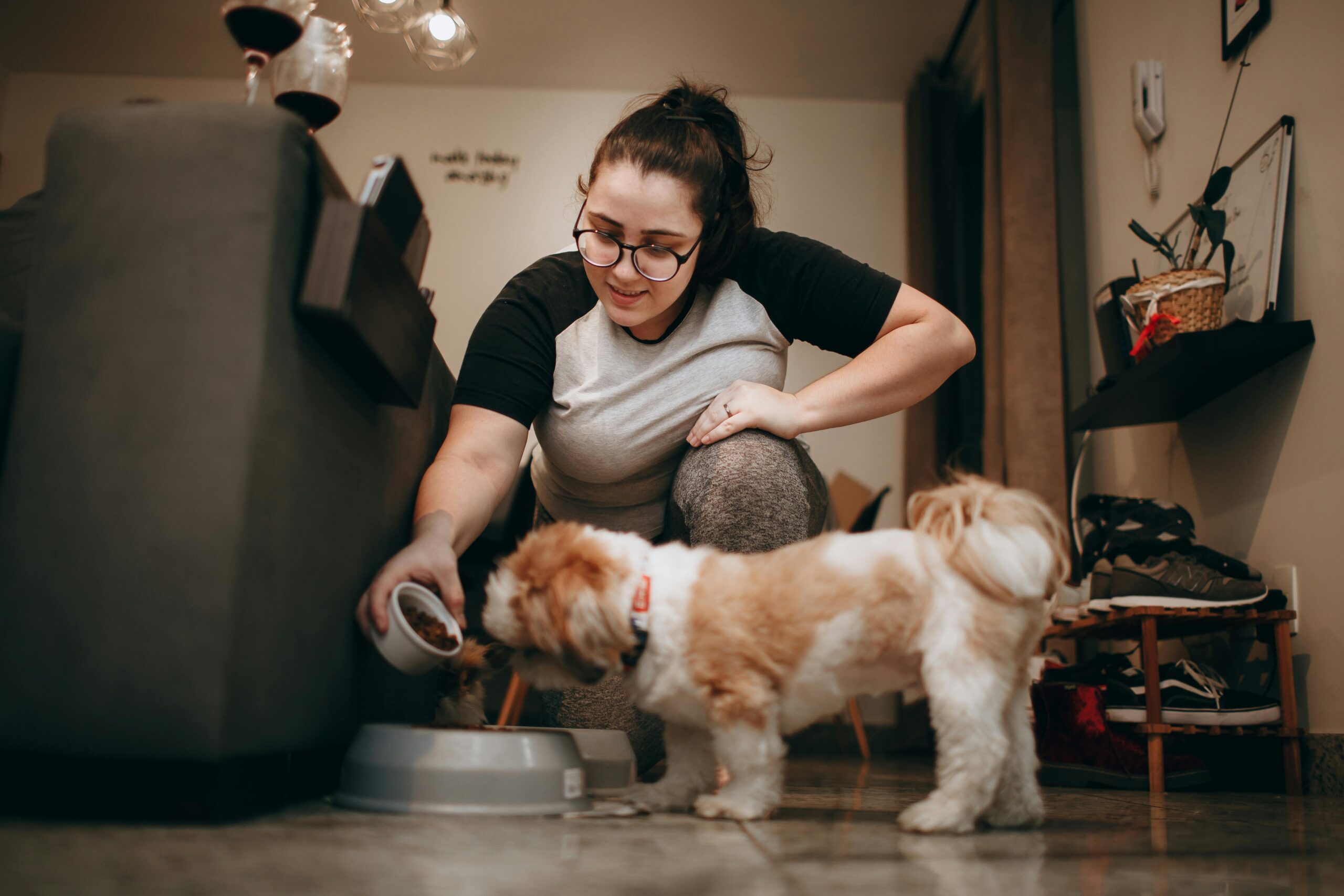7 Common Myths About Dog Nutrition You Need to Stop Believing
There are so many prevalent dog nutrition myths and old wives tales out there, that often it can become hard to separate fact from fiction. Even more so in this era of information overload. I mean, you open Instagram, and engage with one pet wellness post, and the next thing you know, your entire feed is filled with reels, posts and stories about ways to make sure your beloved pet stays in top-notch health.
One post tells you, your dog should only eat meat, the next says dogs have evolved into omnivores who need carbs and fiber in their diet, someone is recommending packaged meals, someone else is telling you to prepare your pet’s meals from scratch. To top it off, all of these people doling out advice are “veterinary experts” or “canine nutritionists”, making it harder to discern what’s a myth and what’s reality. Confusing, overwhelming, and enough to make you stir crazy, right? Well, let’s put an end to this maze of confusion by debunking dog nutrition myths, shall we?
Table of Contents
7 Myths About Dog Nutrition That Could Be Harming Your Pet
Are you a pet parent struggling to figure out what to feed your dog? Torn between a raw diet and home cooked meals? Wondering if packaged dog food is making your dog sick? Prevalent and common dog food misconceptions may be triggering your indecision. Let’s help you get out of this limbo by looking at some of the most common dog diet myths and understanding why they don’t hold water:
- Dogs should only eat meat
One of the most common canine nutrition misconceptions is that dogs should only be fed meat. While there is no denying that dogs thrive on meat-rich diets that offer them adequate protein and they certainly relish it, they are omnivores, not strict carnivores. Their nutritional requirements can only be met through a well-balanced diet that includes proteins, fats, carbohydrates, and essential vitamins found in vegetables and grains.
“An all-meat diet lacks essential nutrients such as calcium, vitamins A and D, and some fatty acids that are critical for canine health,” explains Dr. Jerry Klein, Chief Veterinary Officer of the AKC, “Dogs are omnivores and thrive on a balanced mix of proteins, fats, and carbohydrates, often including vegetables and grains.” Solely feeding meat can lead to deficiencies in calcium, vitamin A, and other nutrients.
Suggested Reading: 7 Signs Your Dog’s Diet Needs an Upgrade
- Grain-free diets are always healthier
One of the most common myths about grain-free dog diets is that canine digestive systems are not meant to process grains and incorporating them in your pet’s diet can lead to digestive distress. However, this is a half-truth. Unless your dog has a grain allergy, there is no need to deprive them of it.
In fact, most dogs benefit from grains, which provide fiber and essential nutrients and some grain-free diets have been linked to heart problems in dogs. Of course, what kind of grain you offer your dog also matters. Corn, for instance, is typically considered an unhealthy filler, on the other hand, whole grains like wheat, rice, and oats are good for your pet.

- Raw diets mimic natural canine nutrition
Raw food diet benefits for dogs: myth or fact? Feeding a raw meat diet to dogs is rooted in the concept that it is closer to what their ancestors ate. However, modern-day dogs’ digestive systems have evolved and vary vastly from their wild canine ancestors. A raw diet can expose your pet to a whole host of infections and diseases.
“Raw diets can expose both dogs and humans to dangerous bacteria like Salmonella and Listeria,” warns the American Veterinary Medical Association (AVMA).
Suggested Reading: Can Dogs Eat Raw Chicken? Risks, Benefits, And Things to Consider
Watch this video to know better:
Dr. Cailin Heinze, a veterinary nutritionist, adds, “There is no scientific evidence that raw diets are better for dogs than commercially prepared options.”
- By-products in dog food are harmful
Many pet owners think “by-products” in pet food are low-quality fillers. This fear usually stems from not understanding dog food labels correctly. Not all by-products mean fillers. Sometimes, these can be used to denote organ meats and cartilage, which are nutritious and provide important vitamins and minerals.
Veterinary nutritionist Dr. Amy Farcas explains, “By-products such as liver, heart, and kidneys are nutrient-dense and safe for dogs. These ingredients are often unfairly maligned but are a valuable part of a balanced diet.”
.
- Home-cooked meals are always better than commercial food
Are homemade dog meals healthier than commercial foods? Well, not necessarily. While homemade meals allow you to control ingredients, they can promote health and well-being only when you invest in nutritionally complete dog meals, which can be challenging and effort-intensive. On the other hand, if you can get the nutritional profile right, on your own or in consultation with a vet or canine nutritionist, these are certainly a viable food choice for your pet.
Having raised 4 pets on home cooked meals, I certainly swear by their efficacy. However, if you’re not careful about the nutritional composition of home-prepared diets, you can expose your pet to the risk of long-term health issues like anemia or skin problems. Portion control can be another issue with these meal options. So while they’re widely promoted, they may not be for everyone.
Dr. Jennifer Larsen, a veterinary nutritionist at UC Davis, echoes the same sentiment, and says, “Most home-cooked diets lack essential nutrients, even when well-intentioned. If you want to prepare meals at home, consult a nutritionist to formulate recipes specific to your dog’s needs.”
Suggested Reading: Can Dogs Eat Dragon Fruit?
- Labels like “natural” and “hypoallergenic” indicate quality
Another one of the prevalent dog nutrition myths are that “natural,” “premium,” and “holistic” foods are good for your dog. However, these are largely marketing buzzwords that aren’t backed by any standardized definitions and do not guarantee a superior or healthier product.
Veterinary nutritionist Dr. Susan Wynn explains, “Terms like ‘natural’ and ‘premium’ are marketing tools and not regulated by the FDA. Instead, look for the AAFCO nutritional adequacy statement to ensure the food meets minimum health standards.”
- Dogs can thrive on vegetarian or vegan diets
When it comes to common dog food misconceptions, this one is perhaps the most dangerous as it exposes your pet to the risk of deficiencies and related diseases. Dogs require certain nutrients such as vitamin B12 and specific amino acids, which are found primarily in animal products. While some dogs may tolerate plant-based diets, these are not ideal for their health.
Dr. Megan Shepherd, a veterinary nutritionist. “Plant-based diets may require careful supplementation for nutrients such as taurine, carnitine, and vitamin B12, which are naturally abundant in animal products.” Why would you choose to offer naturally occurring nutrients in an artificial and processed form?
Suggested Reading: Can Dogs Eat Peanuts? Everything You Need to Know
Takeaway
When it comes to canine nutrition, balance and moderation—as with most things in life—is key. While there are certain foods like grapes, raisins, onions, and chocolate, which are toxic to dogs and must not be fed to them at any cost, dogs can process most other foods consumed by humans just fine. In fact, most of these hold nutritional value for them. So, it’s best to not vilify the grains and fiber, or limit your pet’s dietary intake to meat or raw diet unless you have a good reason to—allergies, digestive issues, and such. As always, when in doubt, it’s best to consult a veterinarian or pet nutrition expert.







